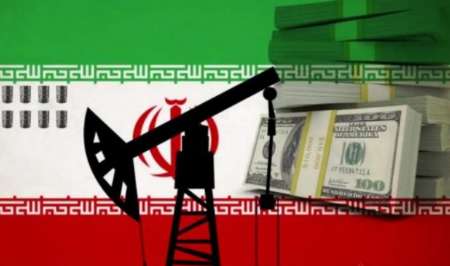ID :
371157
Mon, 06/15/2015 - 19:05
Auther :
Shortlink :
https://oananews.org//node/371157
The shortlink copeid
China, Iran agree to trade cash for oil

Beijing, June 15, IRNA – A Chinese economic media on Monday dwelt on new oil accord between Tehran and Beijing and said both sides have agreed that China would pay in cash for the crude oil and natural gas it imports from Iran.
Chinese nationwide economic network said the agreement will soon go into effect and China will pay in cash the next time it buys oil from Iran, according to a report from Breaking Energy, citing Iranian news agencies.
Previously, Tehran imported goods from China as repayment for the more than 440,000 barrels of oil per day that China purchases. The new deal was reportedly signed last week.
China is the biggest buyer of Iranian crude oil, purchasing more than 440,000 bpd, but Iran imports goods instead of receiving cash from oil sales.
The Iran Daily wrote recently that Iran can sell about one million barrels of crude oil under a preliminary nuclear agreement but the country has to use several routes to receive its money. The two countries reached an agreement on payments partly in cash and the transfer of money to a 3rd country to pay for imports.
“We wanted to transfer part of the export earnings to other countries, such as South Korea and Japan, to pay for imports or receive it in cash. Hence, consultations were made and an agreement was reached in this respect,” said Asadollah Asgaroladi, Chairman of the Iran-China Chamber of Commerce. “Under the new agreement with Chinese authorities, it was decided that after a commission rebate, the balance of the oil and gas exports earnings is returned to Iran,” Asgaroladi said.
He added that there is no problem for payment of the crude oil earnings by the Chinese, without specifying the currency in which the two countries are trading. Crude oil is priced in US dollars, China has stated on several occasions that it would like to see the Chinese RMB Yuan, as part of a basket of global currencies, used as the world’s reserve currency to offset a global financial system dominated by the dollar and Western governments. Iran has also advocated using a different currency for crude oil payments, in efforts to distance itself from Washington, DC’s influence.
This disclosure comes as Iran is in prolonged negotiations with the group known as P5+1 over Tehran’s nuclear program ambitions. In early April, the two sides reached a political agreement to eventually lift Western sanctions.
Iran is negotiating with several other countries, including South Korea of post-sanction cooperation.
The April agreement was a preliminary deal. A 30 June deadline for reaching a permanent deal is approaching. The possible increase of Iranian crude oil to an already over supplied global market is keeping analysts and energy consultancies active.
The US Energy Information Administration (EIA) said after the preliminary deal that reintroducing an estimated 700,000 bpd of Iranian crude oil to the market would counteract production cutbacks elsewhere. The EIA was mostly referring to cut backs at some US tight (shale) oil plays due to falling oil prices, off around 40% in the past year, and slower global demand growth, including slower demand from China. If a comprehensive deal with Iran is reached, the EIA report said, 2016 crude oil prices might need to be revised lower by between $5 and $15 per barrel.
New Iranian crude oil entering the global markets may prove problematic for several OPEC members, especially as the cartel tries to stick to its November decision to maintain production levels to protect market share despite the downward pressure that strategy exerts on oil prices.
For Iran, however, whose economy took a direct hit from Western sanctions over the past five years and for China, who needs to diversify its oil supply, additional volumes of Iranian crude oil coming to market will be good news.





